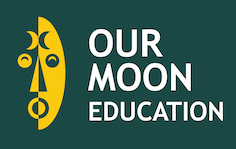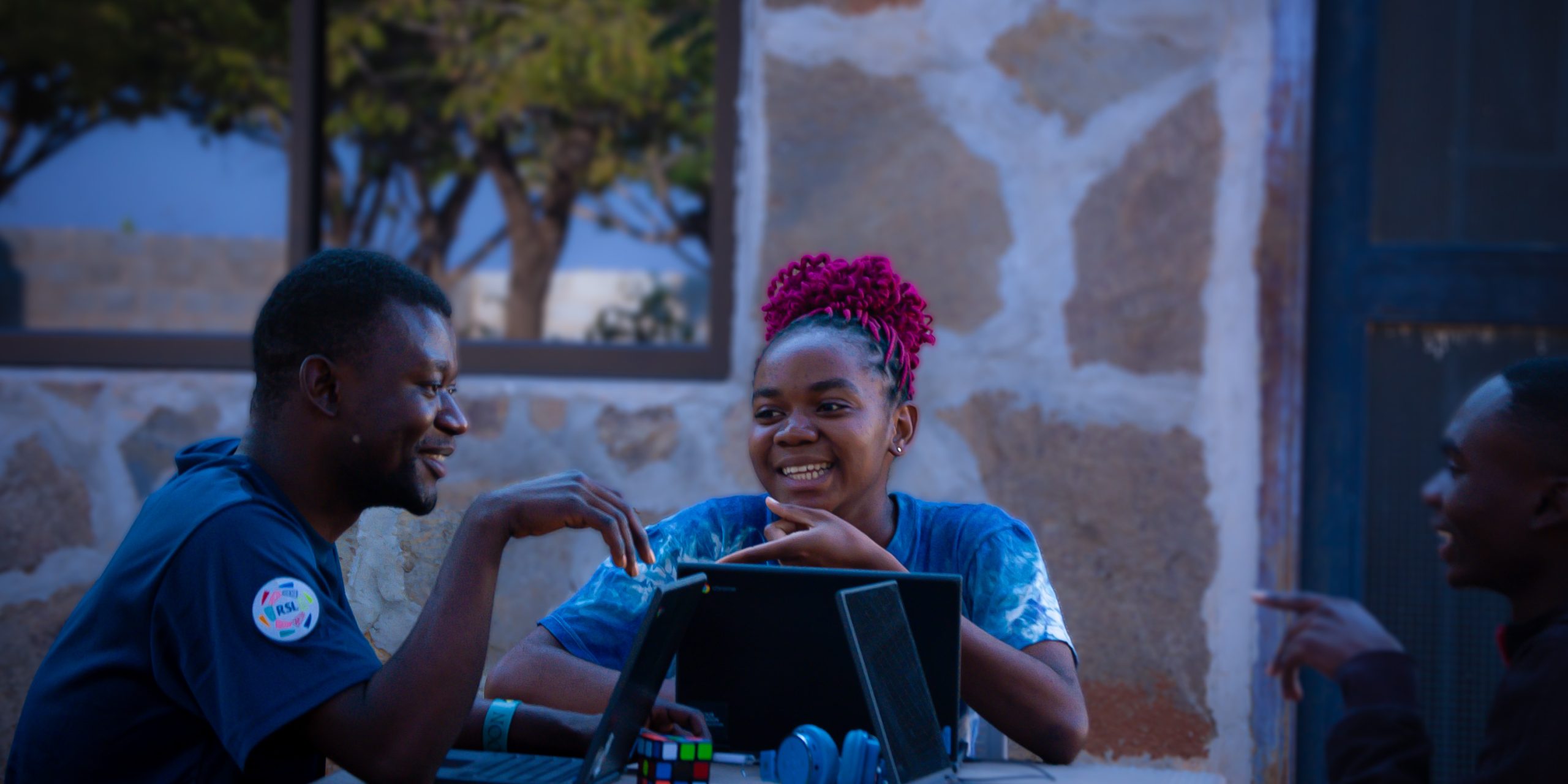Rachel Cameron Potter is a volunteer for Our Moon Education. She has written here about the latest project she has worked on for us and how it is impacting our students.
“In Zambia, people in rural areas have very poor access to medical care. I would love to be able to open a clinic in my mother’s village – and maybe others as well – to help to improve the health of its people. Through Our Moon, I have realised that I don’t have to study medicine to build clinics in rural areas. Rather, I should look at my passions, the variety of skills I need and study something I am really interested in. It is those things that will give me the skills and knowledge to enable me to achieve my goal. The work that Rachel has done has really helped me to realise how many opportunities there are for me to reach my goal.” Mercy Mulenga
The Zambian education system channels the brightest students down specific routes – natural sciences if you have the best results – even if it isn’t a student’s calling. With significant pressure being put on these same students by their families to become doctors and engineers, if they don’t succeed along the way, they fail to pick themselves up and drop out of society. Sadly, in Zambia, many students are forced to drop out of university as they cannot afford to stay as their loans are often insufficient. Even for those who make it to graduation, a large proportion emerge from university feeling uninspired.
With core subjects often being the central focus in many schools, students that select to pursue those subjects at a higher level may feel as though they ought to be working in that specific, or at least a related, field. On the flip side, students with career-centric qualifications, such as Law or Marketing, may come to the end of their studies to find that they no longer wish to pursue that sector of work. What next? Consequently, this can mean graduates limit themselves to specific jobs with specific titles, unaware that their particular set of skills could benefit them elsewhere.
Here’s where Our Moon stepped in. Earlier this year, I set out to design and build a career tool where students could gain both a broader and deeper understanding of what options are out there after university, regardless of the discipline or classification. I read a number of reports on future jobs in Africa to give me a perspective of the skills and knowledge gaps that would be needed.
I began by going through university degrees subject by subject, (using UK sites such as Prospects and UCAS as I am familiar with them), to find out the various career paths associated with each degree. To keep things simple, I wrote out a list of five or six different choices, choosing typical career paths associated with the degree – for example, a law student could go on to become a paralegal – and others that were less obvious.
This was where I began to expand the table. Having filled out many (many) job applications myself, I knew my degree alone would not be enough to make me stand out from the crowd. I could also see from the reports on future jobs in Africa, that our students would need to expand their skills in their own time, which inspired the next table: coding.
In the technological age, coding is more important than ever. From building basic websites to analysing large sets of data, coding is becoming impossible to escape – for students of every discipline.
“ From the Career Advice Tool, I have realised the importance of having soft skills like coding. You don’t necessarily need to be a computer scientist to have such technical expertise. I will definitely add these to my skills base, starting even before I begin uni.” Andrew Phiri
As a starting point, I leaned on my own experience. As a content creator, HTML has aided me in understanding the fundamentals of website design and writing – but what about the wider world of coding? Using my career tool, I looked into the specific skills needed for each career path and made a list of codes to research, from the popular Python to the lesser known Tableau. I then began to write exactly what each code could be used for and how this could be applied to a specific career field.
At this point I noticed that I’d only covered the hard skills in this table; that is, the tangible skills that can be measured arbitrarily, either by certification or otherwise. While these skills are great leverage for ticking boxes in the application process, ultimately soft skills are what will land you the job. I set about breaking down the core soft skills – communication, time management, project management – and offering examples of different areas where these skills could be gained. Team sports improve communication and teamwork skills, whereas volunteering is great for problem solving and time management.
While it’s great to have all these skills in an application, it’s equally important to be able to sell yourself to recruiters and hiring managers on paper and to stand out from the crowd. This inspired the CV and LinkedIn section of the career tool. Here, I applied the advice I had received from recruitment consultants themselves to give the scholars an insight into how a CV should be structured, what to include and what to avoid.
“Through Rachel’s presentation I learnt how to be open to new ideas but still stick to my interests. I learnt how different careers are inter-related and how what one chooses to study can be a foundation to pursue other areas of interest later in life. I also learnt that other than academics a person should take the time to learn soft skills for their personal growth and as preparation into the professional world. In addition, I learnt how to write a good CV and how what you do on social media sends a signal of who you are.” Naomi Bwalya
Navigating the graduate field is difficult, which is why it’s important to get started as soon as possible, even if you haven’t settled on a career choice just yet. While this table aims to give students a head-start on their careers, it is also designed to show them that the world is their oyster; that with the right degree, skill set and support, the sky’s the limit for these bright, ambitious scholars.
“I like the fact that Rachel emphasised the flexibility when it comes to picking careers specifically in the Humanities. I didn’t have a good understanding of courses and related careers. I’m currently using that knowledge in looking at universities and their respective majors. I have a wide range of fields to consider unlike before when I was just focussed on Economics.” Andrew Phiri


